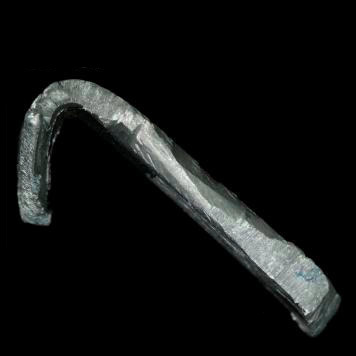◊
◊
◊
◊



| Gd | Z = 64 | ◊ ◊ ◊ ◊ ◊ |
Gadolinium | |
| Named after chemist "Johan Gadolin" | ||||
| (AM) Atomic Mass | 157.25 amu | ♦ | +3 | |
| 3233 °C | ♦ | 1311 °C | ||
| 7.89 g/cm3 | ♦ | Hexagonal | ||
| 1.1 | ♦ | 1.61 Å | ||
| Solid | ♦ | (C) Heat Capacity | 0.236 J/g °C | |
| Electronic-Config | [Xe] 4f7 5d1 6s2 | ♦ | 593.38 kJ/mol | |
| 301.3 kJ/mol | ♦ | 10.05 kJ/mol | ||
| 1880 | ♦ | Switzerland | ||
| (E°) Standard Potential | Gd3+⇔ Gd (-2.279 V) | |||
| Stable isotopes | 154Gd 155Gd 156Gd 157Gd 158Gd 160Gd | |||
| Discovered/Synthesized by | Jean Charles Galissard de Marignac | |||
| Natural Source | The mineral/ore bastnasite, monazite, loparite | |||
| Common Uses | Magnetic resonance imaging (MRI) contrast enhancer, phosphors, neutron radiography | |||
| Other Info | Bright, soft, silvery-white metal that is both ductile and malleable. | |||
Previous Element |
 |
Next Element |
||
| Back to Table |
Common Properties |
|||
| Home Page |
Definitions |
|||